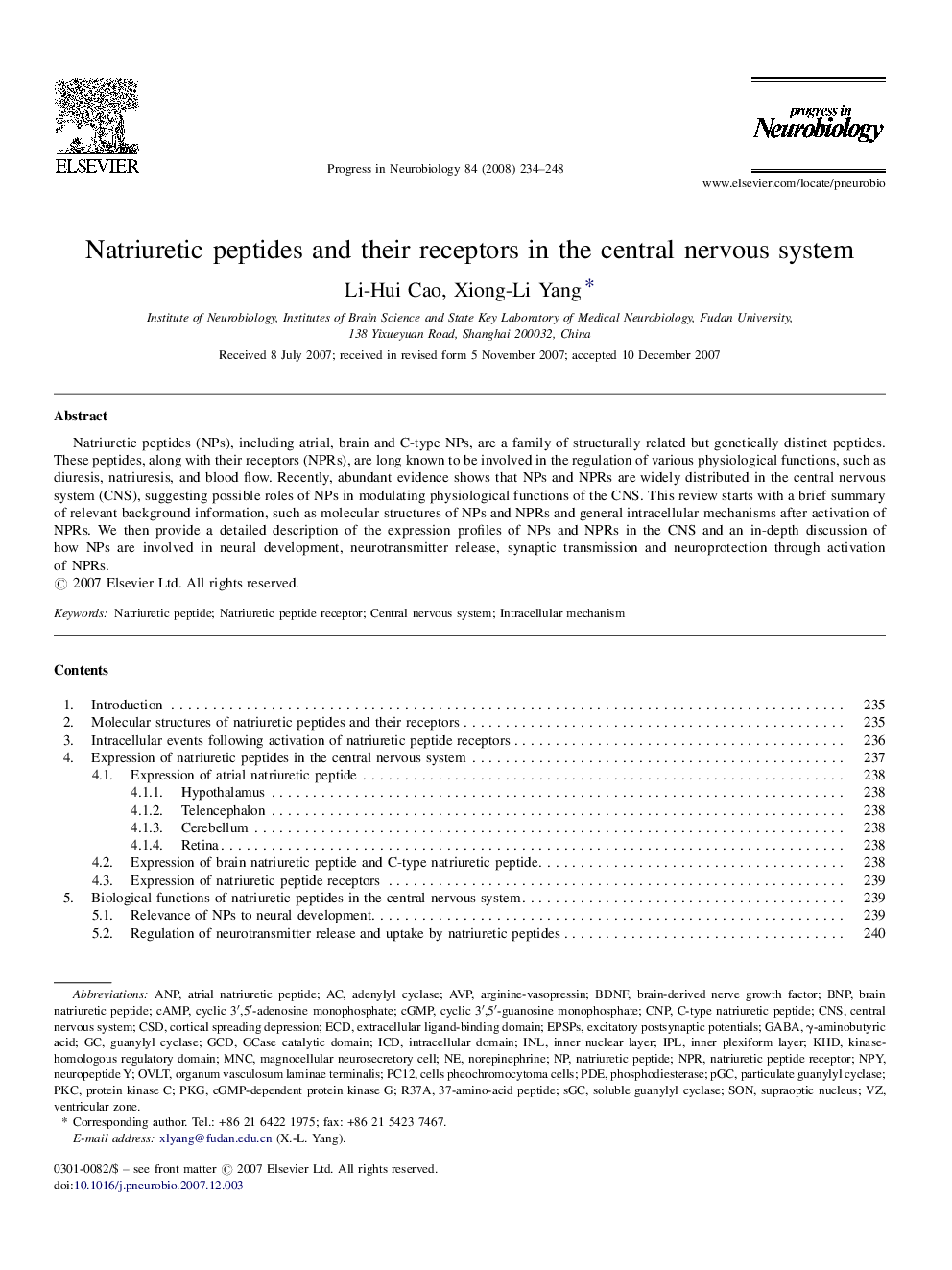| Article ID | Journal | Published Year | Pages | File Type |
|---|---|---|---|---|
| 4353923 | Progress in Neurobiology | 2008 | 15 Pages |
Natriuretic peptides (NPs), including atrial, brain and C-type NPs, are a family of structurally related but genetically distinct peptides. These peptides, along with their receptors (NPRs), are long known to be involved in the regulation of various physiological functions, such as diuresis, natriuresis, and blood flow. Recently, abundant evidence shows that NPs and NPRs are widely distributed in the central nervous system (CNS), suggesting possible roles of NPs in modulating physiological functions of the CNS. This review starts with a brief summary of relevant background information, such as molecular structures of NPs and NPRs and general intracellular mechanisms after activation of NPRs. We then provide a detailed description of the expression profiles of NPs and NPRs in the CNS and an in-depth discussion of how NPs are involved in neural development, neurotransmitter release, synaptic transmission and neuroprotection through activation of NPRs.
